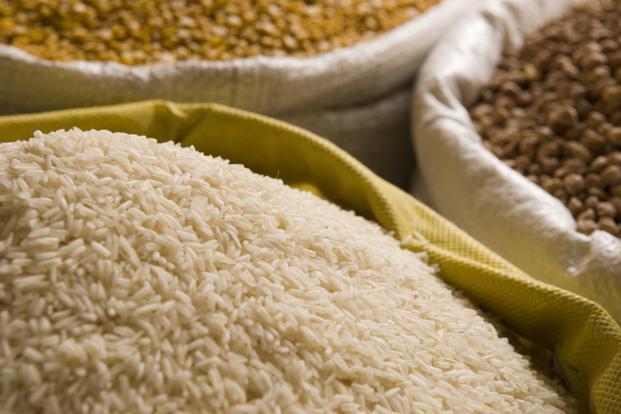In recent times, especially in the run up to the general elections due in 2014, a spate of food subsidies and cash transfer schemes have been brought into effect by the central government. Prominent among them being the recently introduced food subsidy bill and the adhaar card based cash transfer schemes that transfer the various cash subsidies, like on the cooking gas and other food products directly into the bank account of the beneficiary. While the aim of such benefits are consistent with the ideas of equity and raising the living standards of the millions of people in our country, and no one denies their importance in the current socio-economic scenario, it is the timing of the introduction of such schemes and the real intent of the government behind such actions that is questionable.
It is obvious that in a country like India, where still a sizable quantum of the population lives below the poverty line, food subsidies form a crucial lifeline by helping to provide food and other essential commodities to the poor at affordable rates. It is also sensible to distribute food to the needy at affordable prices since there is an absence of a mechanism and infrastructure to properly store all the food grains and other perishable commodities in the godowns and cold storages in the country. As a result, when the storage capacity is exceeded or there is a bumper harvest, or a combination of both of these factors, all the food grains cannot be properly stored and preserved, and many times we have observed that such food grains keep rotting in the open, which is a criminal waste, since still a sizable population in the country suffers from hunger and malnutrition. Hence, if schemes are implemented that encourage the poor to buy food grains at prices they can afford, it can increase the consumption rate, thereby solving the problems of hunger and malnutrition to a great extent. Thus, food subsidies are relevant and make sense in the economic and social context of our country and should be encouraged.
On the other hand, many instances have been reported where the food grains meant for the poor have been diverted to the open market, and sold at the market rates, which negates the entire purpose of food subsidies. Also, due to the poor implementation of the public distribution system in India, there are a lot of leakages at various levels in the entire chain, starting right from the food grain procurement to its transportation and distribution to the needy, for whom such schemes have been formulated. Until and unless proper mechanisms of making the public distribution system more efficient and corruption free are implemented, the whole purpose of such kind of subsidies is negated. In addition, the government has failed to ensure that subsidies don’t create a fiscal burden on the state exchequer, and that subsidies don’t damage the prospects of the economy of the nation, giving rise to other related problems such as inflation and price rise. Government, instead of making serious efforts in controlling the non plan expenditure and blatant misuse of the public money, has not made adequate efforts in streamlining the functioning of the administration, so that instead of looking for new source of funds that can finance such subsidies, it can save the required amount of money by controlling its own wasteful expenditure and plugging the leaks in the PDS and curb the corruption involved.
As far as direct cash transfer schemes are concerned, even though it is a commendable effort, and has the potential of curbing corruption, the efficacy of this scheme to benefit the poorest of the poor, the most needy and the people belonging to the lowest economic strata of the society is questionable. Whether such kind of people do really have an access to a bank account to which cash subsides can be transferred is debatable. Also, whether such kind of cash transfers can take place in places that are remote and thinly populated, and also whether the poorest of the poor, the real target of such cash subsidies, posses the bare minimum expertise to operate a bank account is also questionable.
Also, the timing of the introduction of such kind of schemes right before an election year raises the question of the real intent of the government. During the times of the current economic crisis, instead of addressing the issues that have been responsible for the current sorry state of affairs, the government is hell bent on burdening the economy more and more, leading to a deepening of the economic crisis and other adverse repercussions. Is the real intention of the government to gather votes and create a false image of being pro poor by the introduction of such schemes is a point to ponder on. The government could have done a great service to the nation, if instead of focusing its attention and energy on providing such doles, it could have addressed the issues of creating more jobs, removing corruption from the system and delivering good governance, the issue of the poor needing food subsides may not have risen in the first place.
At the end, it needs to be emphasized clearly that the government needs to do much more than it currently claims to have achieved, and it is really something to be ashamed of that still after nearly quarter of a century since independence, people still are hungry and malnourished in our country, giving rise to measures like food subsidy. If an enabling environment to the poor of the country had been provided in the first place, such kind of subsidies would not have been needed at all.
image credit: http://www.livemint.com/rf/Image-621×414/LiveMint/Period1/2013/07/06/Photos/food%20grains_%203C–621×414.jpg

 Life is not a commodity...
Life is not a commodity...
Leave A Comment